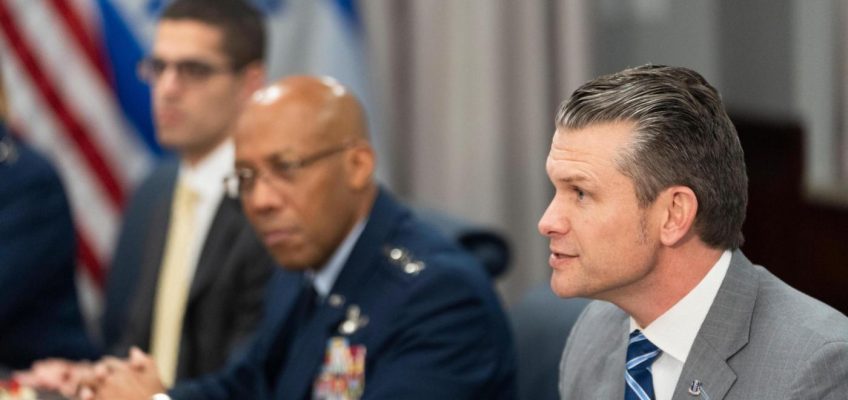Spring’s coming and we all want to be outdoors. But when the daylight fades we still read or anticipate what books we’ll take on vacation. Here’s a peek at spring/summer books in a clip-and-save format so you’re in the know about Minnesota authors and publishers.
March
Fiction
“Shadow Falls” by Christopher Valen (Santa Rita Press): St. Paul homicide detectives John Santana and Gabriel Cruz investigate the death of the daughter of a venture capitalist whose body was found in Shadow Falls park in Valen’s 10th Santana thriller.
“The Sun” by Frank F. Weber (The Story Laboratory/BookBaby): Forensic psychologist Weber (“Scandal of Vandals”) returns with a real-life-inspired crime in this story of a brilliant young defense attorney dedicated to getting her narcissistic lover out of prison, plunging her into a spiral of danger from which there may be no return.
“The Parlor” by John Louis Lauber: The owner of Chicago’s best pizza parlor is threatened by the city’s crime family
(Courtesy of Dial Books)
“Nellie’s Big Splash” by Cori Doerrfeld (Penguin Young Readers): Illustrator of the bestselling “The Rabbit Listened,” as well as others, tells of a newly hatched turtle as she overcomes her fears of the ocean and sets out to reunite with her family. (Reading April 12 at Red Balloon Bookshop, 891 Grand Ave., St. Paul.)
Nonfiction
(Courtesy of the University of Minnesota Press)
“Gentlemen of the Woods: Manhood, Myth, and the American Lumberjack” by Willa Hammitt Brown (University of Minnesota Press): A cultural history of the life and lore of the real lumberjack and his place in American history in a correction to the Paul Bunyan stories of an ax-wielding guy striding across the Midwest.
“Horse Lovers” by Karen Winegar (Horse Feed Press): Former Minneapolis newspaper writer explores the female fascination with horses based on her years of caring for and riding horses. (Reading at 7 p.m. April 23, Magers & Quinn, 3038 Hennepin Ave. S., Mpls.)
“Lighthouses of the Great Lakes: An Architect’s Sketchbook”: by Jim Lammers (ORO Editions): A road trip around the Great Lakes tells stories of lighthouse building and establishment as well as how lighthouses and their components work and memories of keepers and tenders. Lammers is an arborist on his 18-acre farmstead in Chisago County and teaches travel sketching at Marine Mills Folk School.
“Masters Of Hockey Scoring Magic” by Jeff Olson (Palisade Head Press): Minnesota college and professional line mates Natalie Darwitz and Krissy Wendell-Pohl and their journey to the Hockey Hall of Fame.
“Smash, Crash, Topple, Roll!” by Catherine Thimmesh, illustrated by Shanda McCloskey (Chronicle Books): From the award-winning author of nonfiction for children comes a picture book subtitled “The Inventive Rube Goldberg: A Life in Comics, Contraptions, and Six Simple Machines,” an illustrated look at six simple machines — lever, wheel and axle, inclined plane, wedge, screw, and pulley, that will also intrigue adults.
April
Fiction
“The Flip Side” by Jason Walz (Penguin Young Readers): Graphic novel inspired by a story told to the author by his best friend before his tragic death, about loneliness and depression that come with losing someone at a young age as seen through the eyes of a grief-stricken boy, offering a way navigate tough conversations about mental health and grief in the home.
(Courtesy of the author)
Peter Geye (Courtesy of the author)
“A Lesser Light” by Peter Geye (University of Minnesota Press): One of the most anticipated books of the season from the author of “The Lighthouse Road,” “Wintering” and “Northernmost.” In 1910 in a lighthouse on Lake Superior, the bride of the lighthouse keeper is unhappy in her ill-suited marriage when a clairvoyant girl and her uncle emerge from across the cove. (Launch reading at 7 p.m. April 15, Norway House, 913 E. Franklin Ave., Mpls.)
“The Murder Show” by Matt Goldman (Forge): From the author of the Nils Shapiro crime series, this stand-alone features an out-of-work TV showrunner who returns to Minnesota to help his former classmate, a police officer, investigate the hit-and-run that killed their friend.
(Courtesy of Coffee House Press)
“No Names” by Greg Hewitt (Coffee House Press): A debut novel from the author of five books of poetry inspired by the iconic punk scene of the late ’70s, blurring the lines of affection and sexuality in a story about a washed-up former rocker and the young fan who finds him.
“The Seers” by Sulaiman Addonia (Coffee House Press): Chronicles the first weeks of a young Eritrean refugee in London as her sexual encounters become an expression of self, told in a single, continuous paragraph.
Nonfiction
“Dearly Beloved: Prince, Spirituality and This Thing Called Life” by Pamela Ayo Yetunde (Broadleaf Books): The author, a Prince fan and founder of the Theology of Prince project at United Theological Seminary, argues that the Minneapolis-born rock icon’s music transcended religious beliefs.
“The Lonely Veteran’s Guide to Companionship” by Bronson Lemer (University of Wisconsin Press): St. Paul-based writer’s memoir in the form of interrelated essays as seen through the lens of a queer veteran, focusing on the difficulty of forming true connections with others. (Launch reading April 8, Magers & Quinn, 3038 Hennepin Ave. S., Mpls., in conversation with Chris Stedman.)
“Racing Uphill: Confronting a Life with Epilepsy” by Stacia Kalinoski (University of Minnesota Press): Emmy award-winning journalist whose career ended after a seizure details how she learned more about her condition and offers inspiration for taking control of one’s own health.
(Courtesy of the University of Minnesota Press)
“Shelter and Storm: At Home in the Driftless” by Tamara Dean (University of Minnesota Press): Twelve essays by an author who sought a way to live lightly upon the land and built a sustainable lifestyle in the driftless area of Wisconsin that was untouched by glaciers.
“One Spring Up North” by John Owens (University of Minnesota Press): Freelance illustrator and author of “One Summer Up North” and “One Winter Up North” takes young readers in this picture book to the Boundary Waters as winter melts away and wildlife awakens.
May
Nonfiction
“Chasing Wildflowers” by Phyllis Root, photography by Kelly Povo (University of Minnesota Press): Author of more than 50 books subtitles this one “An Adventurous Guide to Finding Minnesota’s Native Flowers In Their Unique Habitats.” A continuation of their previous book “Searching for Minnesota’s Native Wildflowers.”
“Chief Rondo: Securing Justice for the Murder of George Floyd” by Medaria ‘Rondo’ Arradondo with Jennifer Amie (Diversion Books): Former Minneapolis police chief’s book on leadership, justice and race, published five years after the murder of Gorge Floyd, detailing the city’s first Black police chief’s experiences at the helm of a troubled department where he put accountability first.
“Global Heartland: Cultivating the American Century on the Midwestern Farm” by Peter Simons (University of Minnesota Press): Highlights the critical role of Midwestern farmers in the creation of the American Century.
“The Scenic Route: Building Minnesota’s North Shore” by Arnold R. Alanen (University of Minnesota Press): Fact- and photo-filled story of the section of Minnesota Highway 61 that parallels Lake Superior’s North Shore, considered one of Minnesota’s best driving experiences. A field guide to the cultural landscape of the North Shore Scenic Drive and a journey into its evolution.
“Tree Trek” by Stephanie Mirocha (Holy Cow! Press): The author of this memoir, who grew up climbing trees and exploring Como Park, weaves a blend of botany, philosophy, personal reflections and healing through nature from grief after the loss of her father with the backdrop of her father’s educational Tree Trek.
“You’re Too Young to Understand” by Liz Fiedorow Sjaastad (Wise Ink): Former St. Paulite’s memoir of caring for her aging parents and what those four years taught her about her relationship to her mother and her own family.
Fiction/poetry
“Enter” by Jim Moore (Graywolf Press): On the cusp of his 80s, one of Minnesota’s best-known poets, who divides his time between Minnesota and Italy, navigates public spaces of his neighborhood, acknowledging suffering while making room for joy and moments of peace.
“Lucky Tomorrow” by Deborah Jiang-Stein (University of Minnesota Press): Stories in this collection from the author of “Prison Baby” move through settings drawn from the writer’s life, from Seattle where she grew up after being born in an Appalachian prison, to Tokyo where she once lived, and the Twin Cities, where she founded the unPrison Project, working with and mentoring people in prisons to build life skills.
June
Fiction
(Courtesy of Simon & Schuster)
Christopher Tradowsky (Courtesy of Simon & Schuster)
“Midnight at the Cinema Palace” by Christopher Tradowsky (Simon & Schuster): Debut novel from a St. Paul author set in San Francisco in 1993 at the height of the AIDS epidemic and beginning of the tech boom. A young man, out of college and out of the closet who is struggling to find his footing in the city, is captivated by a young queer couple living beyond the boundaries of gender and sexuality.
Nonfiction
“Wolf Island: Discovering the Secrets of a Mythic Animal by David Mech, contributions by Greg Breining (University of Minnesota Press): The world’s leading wolf expert describes the first years of a major study that transformed our understanding of one of nature’s most iconic creatures
“At the Corner of Past and Present” by Pamela Carter Joern (University of Nebraska Press): Author of four works of fiction, including “The Floor of the Sky” turns to personal essays to explore the intersections of time and place, memory and truth, life and art.
Readers and writers: Focusing on collections from Minnesota poets
Literary calendar for week of February 23: ‘Creature Needs’ anthology
How George E. Johnson made millions in the hair care industry while following the Golden Rule
Eastern Europe’s traditional ingredients get star treatment in the new cookbook ‘Kapusta’
Readers and writers: Three strong novels with Minnesota ties to add to your list




